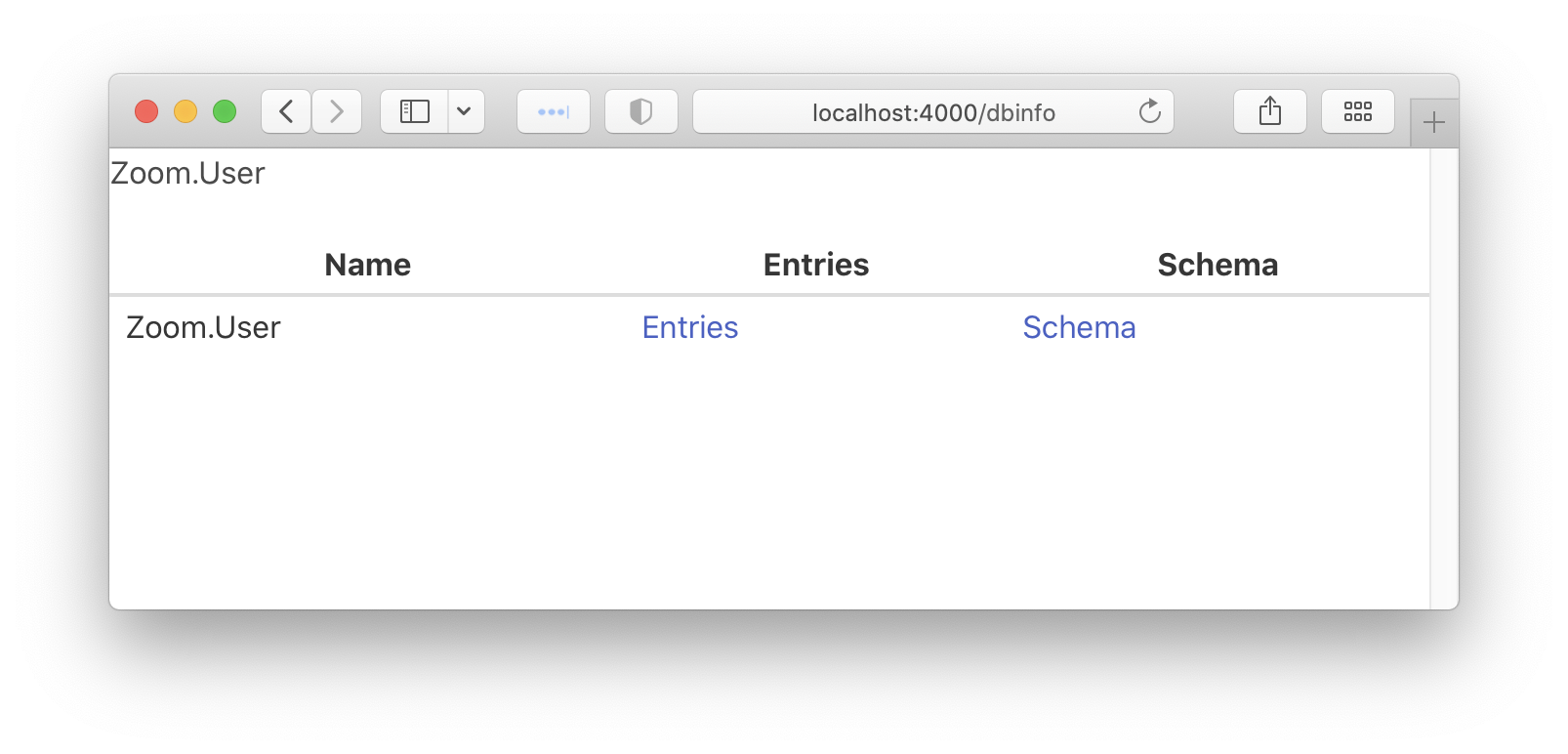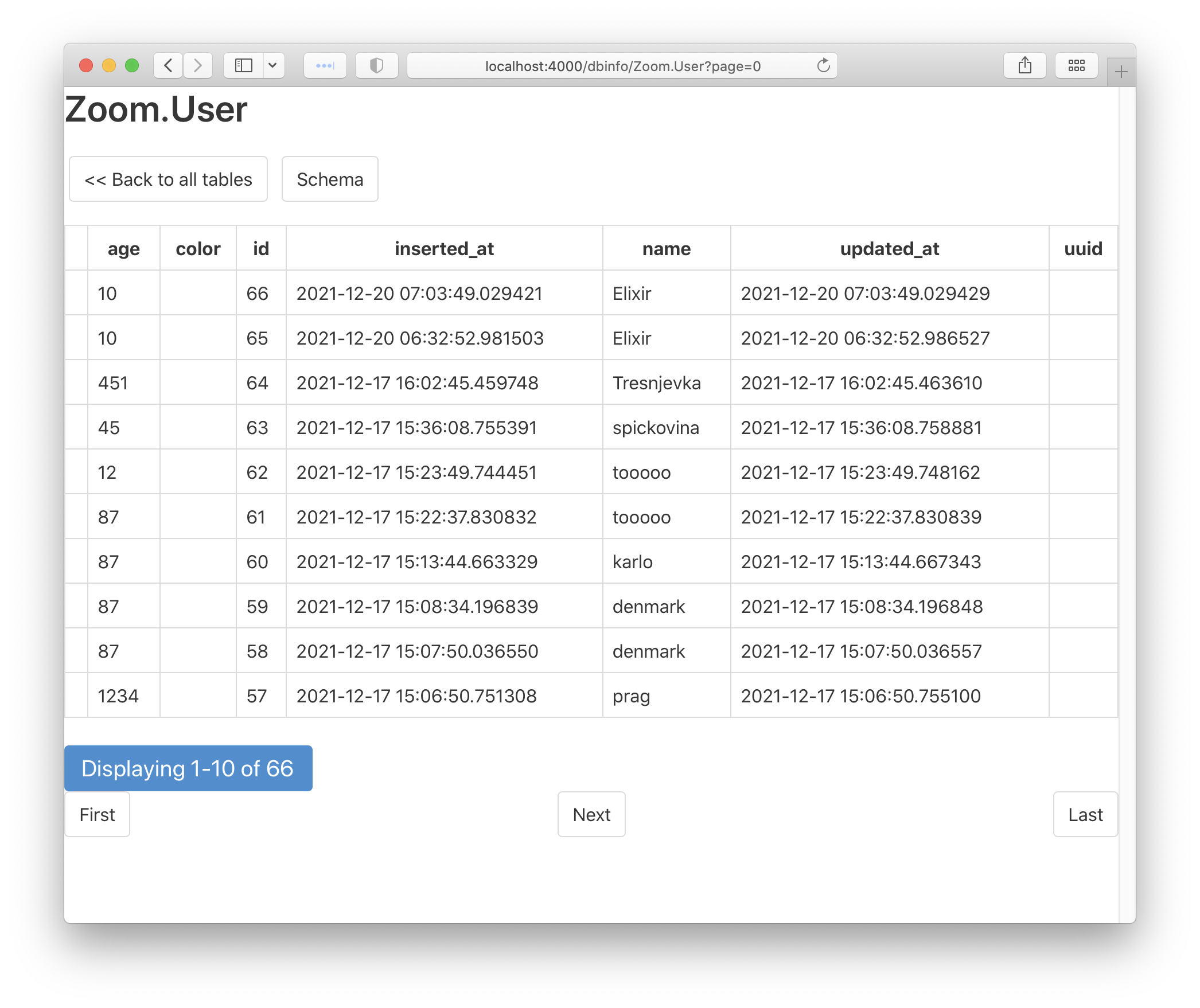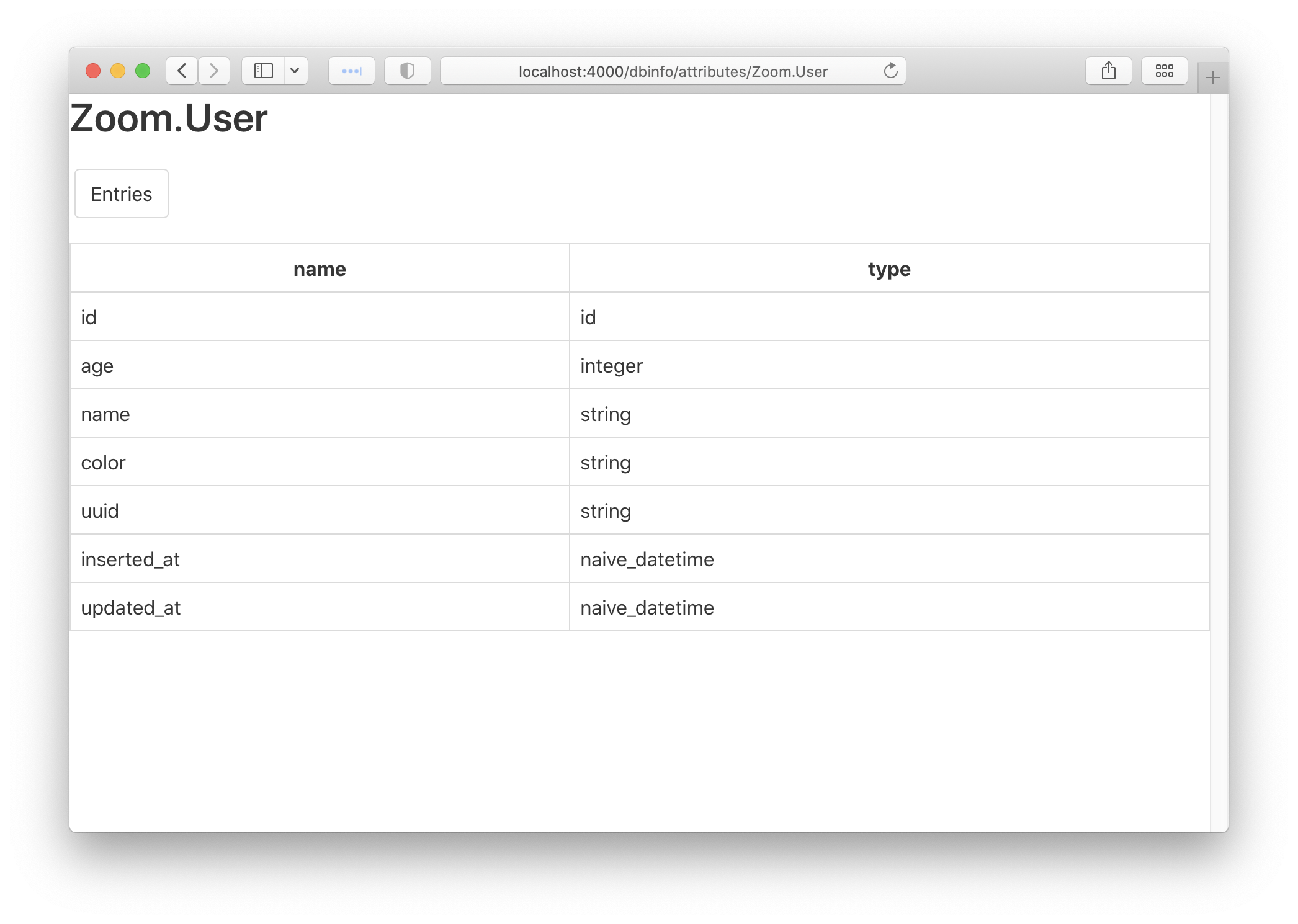Inspired by Vlado's gem.
Once installed, update your router's configuration to forward requests to a DbInfo with a unique name of your choosing:
# lib/my_app_web/router.ex
use MyAppWeb, :router
import DbInfo.Router
...
if Mix.env() == :dev do
scope "/" do
pipe_through :browser
dbinfo "/dbinfo"
end
end# config/config.exs
config :db_info, :app, :your_phoenix_app_nameThis is all. Run mix phx.server and access the "/dbinfo".
If you want to use the DbInfo in production, you should put it behind some authentication and allow only admins to access it. If your application does not have an admins-only section yet, you can use Plug.BasicAuth to set up some basic authentication as long as you are also using SSL (which you should anyway):
# lib/my_app_web/router.ex
use MyAppWeb, :router
import DbInfo.Router
...
pipeline :admins_only do
plug :admin_basic_auth
end
scope "/" do
pipe_through [:browser, :admins_only]
dbinfo "/dbinfo"
end
defp admin_basic_auth(conn, _opts) do
username = System.fetch_env!("AUTH_USERNAME")
password = System.fetch_env!("AUTH_PASSWORD")
Plug.BasicAuth.basic_auth(conn, username: username, password: password)
endIf available in Hex, the package can be installed
by adding db_info to your list of dependencies in mix.exs:
def deps do
[
{:db_info, "~> 0.1.0"}
]
endDependency errors could be solved using following:
def deps do
[
{:ecto, "~> your_version", override: :true},
{:phoenix, "~> your_version", override: true},
{:phoenix_html, "~> your_version", override: :true}
]
endDocumentation can be generated with ExDoc and published on HexDocs. Once published, the docs can be found at https://hexdocs.pm/db_info.


